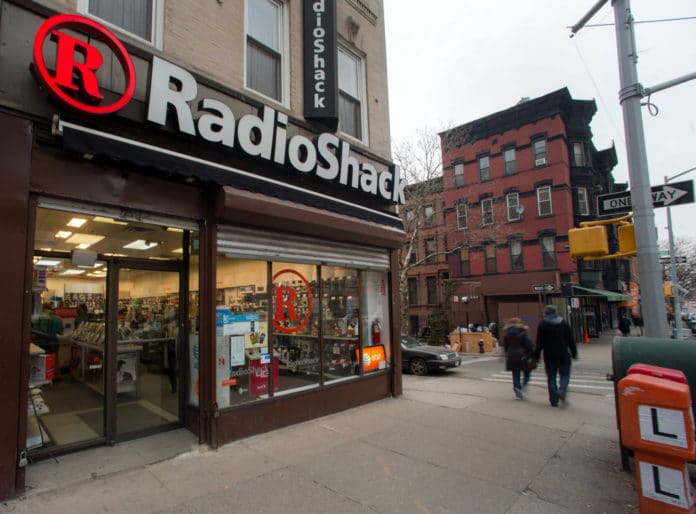The judge overseeing RadioShack’s bankruptcy said he will approve the sale of about 1,700 stores to the chain’s biggest shareholder.
Tuesday’s decision ensures the survival of the 94-year-old electronics retailer, for now, and saves thousands of jobs that might have been lost if the stores were liquidated. The buyer, Standard General, has said it plans to run the business in a co-branding arrangement with Sprint Corp.
During four days of sometimes contentious hearings in Wilmington, Delaware, bankruptcy court, creditors fought the company and each other over how much the stores were worth and how proceeds of the sale should be used.
Hedge fund Standard General was declared the winner of an asset auction last week with a bid worth about $145.5 million. Creditor Salus Capital Partners had called the auction a sham and asked U.S. Bankruptcy Judge Brendan Shannon to reject the result.
RadioShack argued that Salus missed its chance to outbid Standard General, which the Fort Worth, Texas-based retailer said made the highest and best offer. The judge said he was faced with two alternatives: liquidation or a sale as a going concern.
“The going-concern bid from Standard General is clearly economically superior to the liquidation bid even before taking into account the added and terribly important benefit of preserving over 7,000 jobs and saving a century-old American retailing icon,” Shannon said.
One sticking point was the amount of RadioShack debt Standard General would be allowed to cancel in lieu of paying cash. Salus, as agent for some lenders, had asked the judge to cap the so-called credit bid. Shannon allowed Standard General to credit bid as much as $112 million.
Another key issue before the court was who should be held liable if creditors successfully sued other lenders for actions taken before the chain’s February Chapter 11 filing. The official committee of unsecured creditors is investigating whether some lenders could be held responsible for the electronics retailer’s bankruptcy.
A group known as the ABL lenders claimed their credit agreements gave them protection from potential lawsuits. They originally demanded that $120 million from the asset sale, in cash or equity, be set aside to pay any judgments. With encouragement from Shannon, that sum was knocked down to $12 million.
RadioShack, the lenders and the buyer also worked to insert language in the sale documents designed to preserve the right of all the various creditors to sue each other over the bankruptcy.
Standard General isn’t the only investor with plans to use some of RadioShack’s real estate to sell phone service. Spring Mobile, a unit of GameStop, the video-game chain, won a previous auction for the right to take over about 160 stores.
Spring Mobile has about two months to decide which of the locations it wants to keep. The intellectual property, including the company’s name, will be auctioned separately.
The company entered bankruptcy with more than 4,000 stores, listing assets of $1.2 billion and debt of $1.38 billion in court documents filed Feb. 5.
Shannon in February gave the retailer permission to run store-closing sales at some locations and approved a pre- bankruptcy agreement with liquidators. As many as 2,100 stores are to be closed under a deal with the liquidators, Hilco Merchant Resources, Gordon Brothers Retail Partners and Tiger Capital Group.
The case is In re RadioShack Corp., 15-10197, U.S. Bankruptcy Court, District of Delaware (Wilmington).
—-
With assistance from Steven Church in Wilmington, Delaware.






